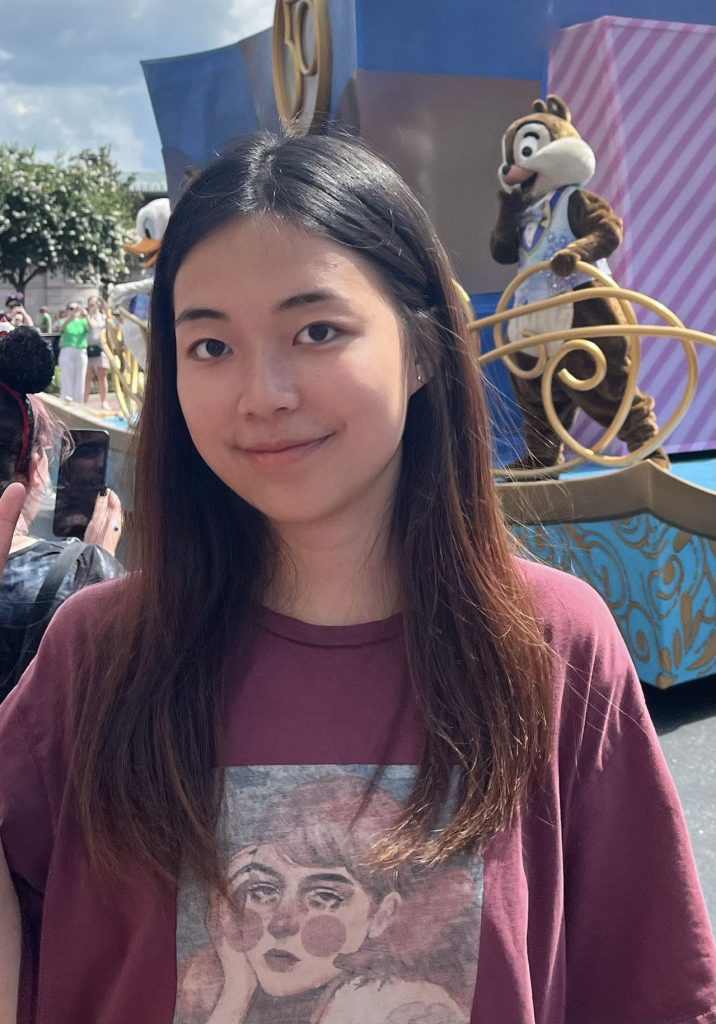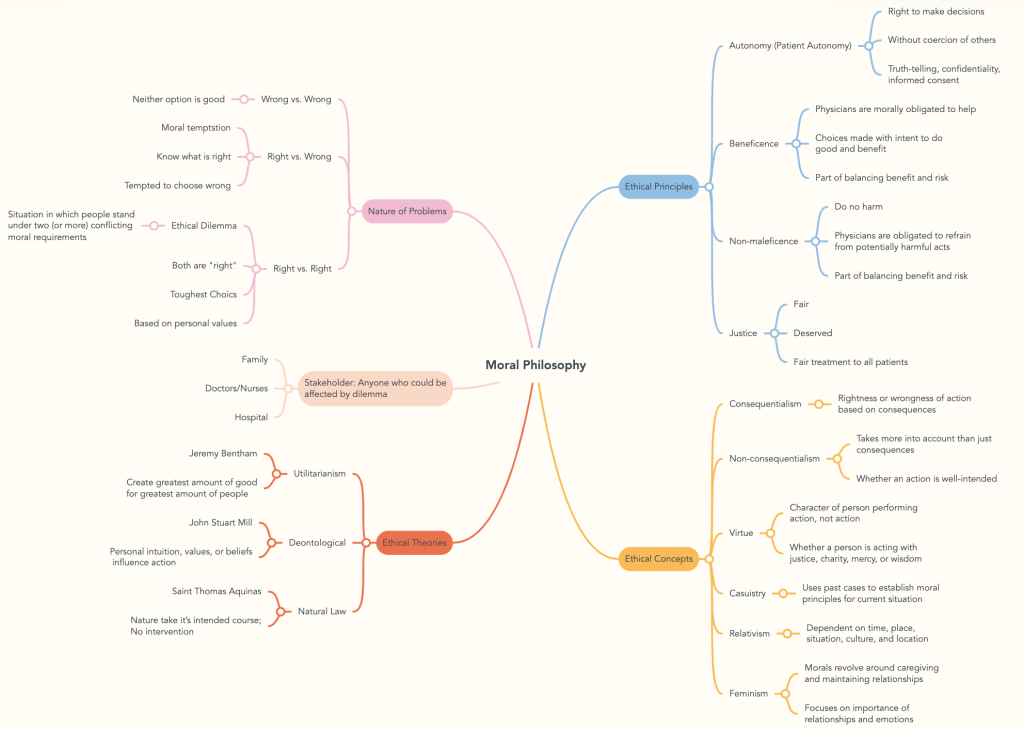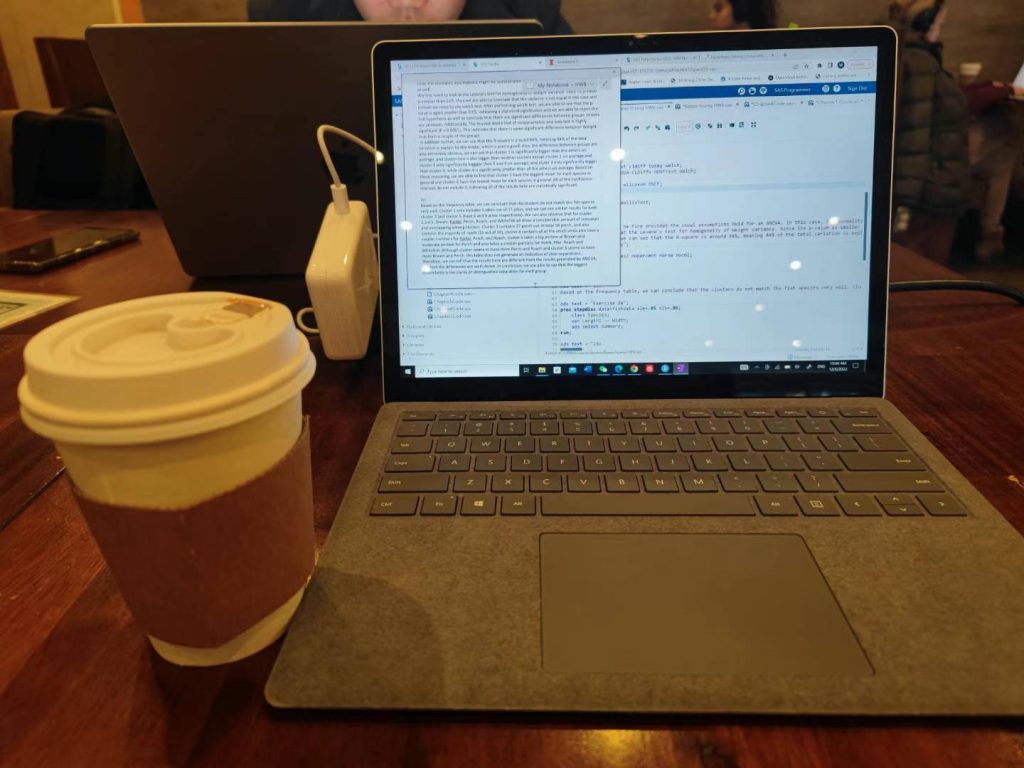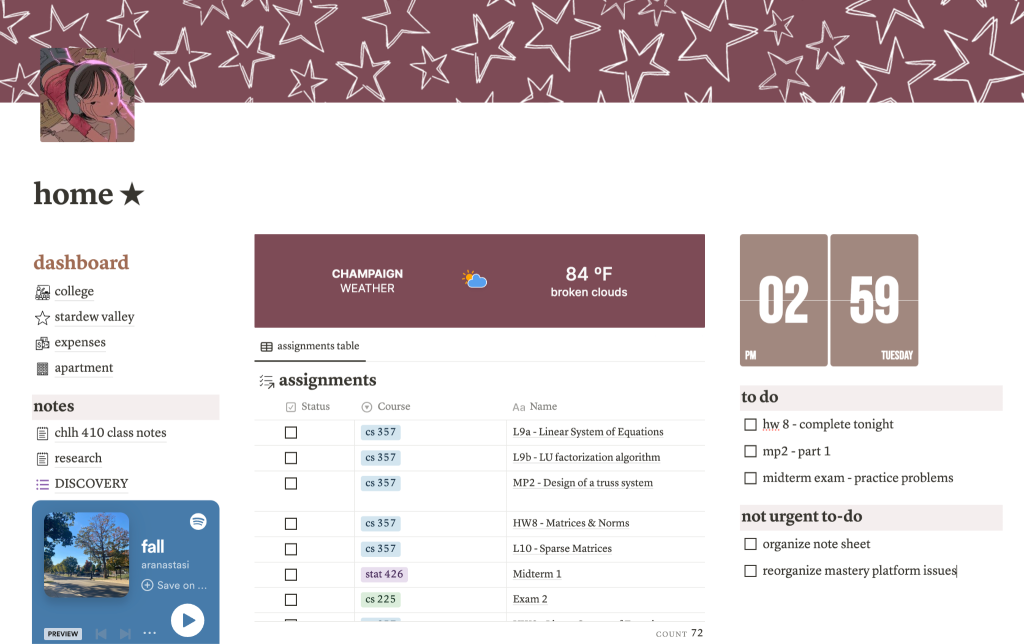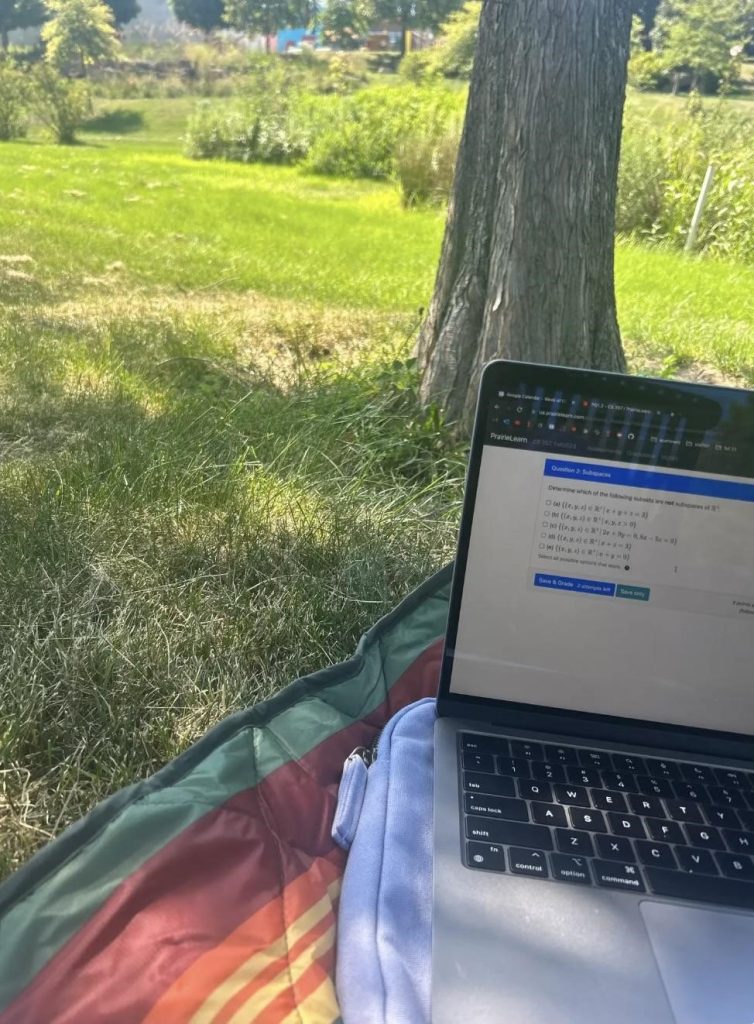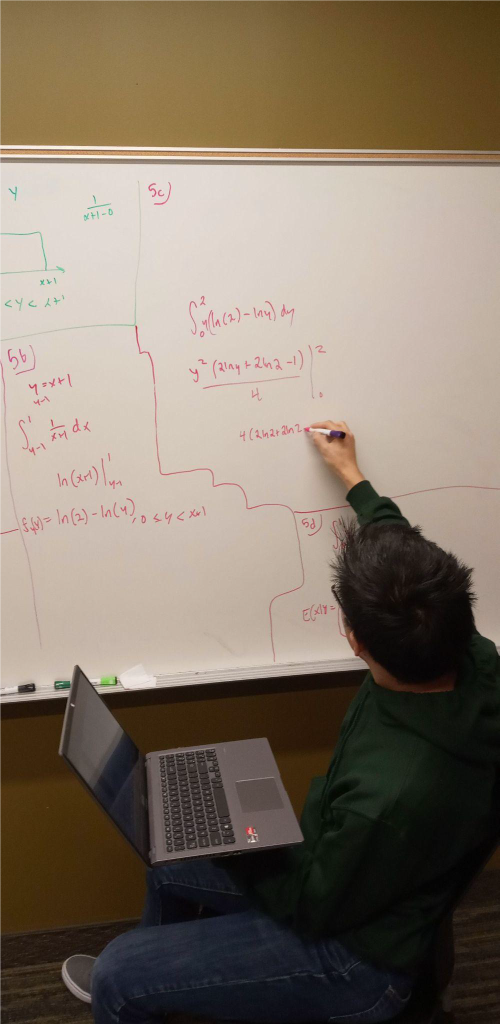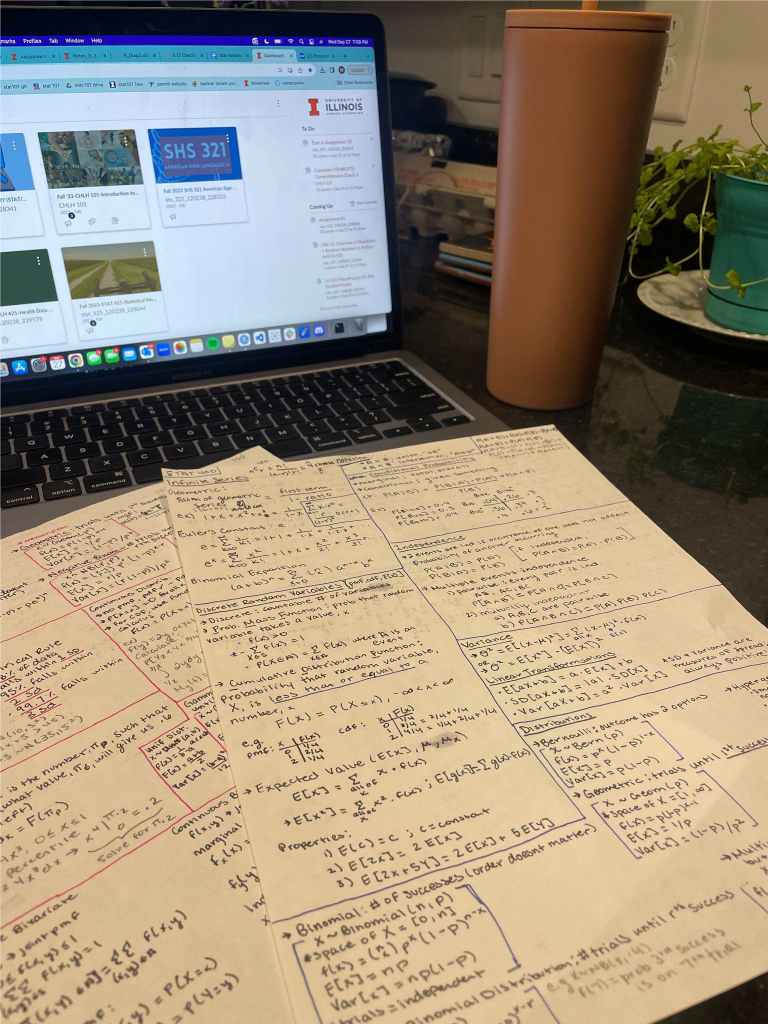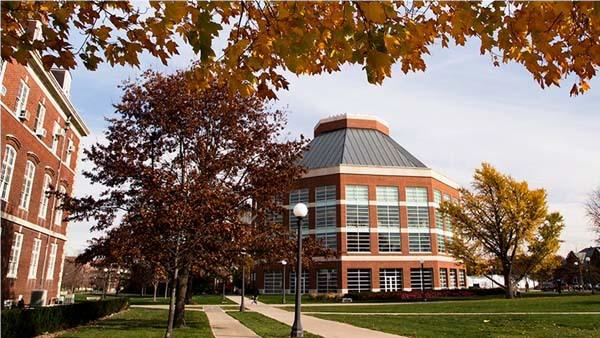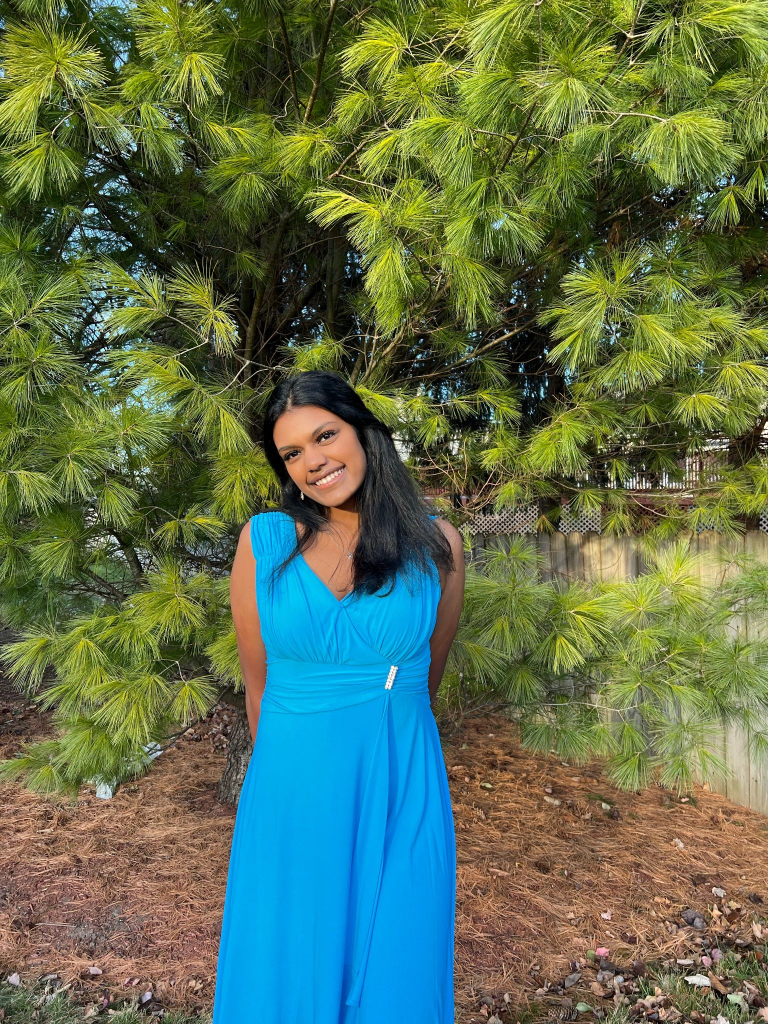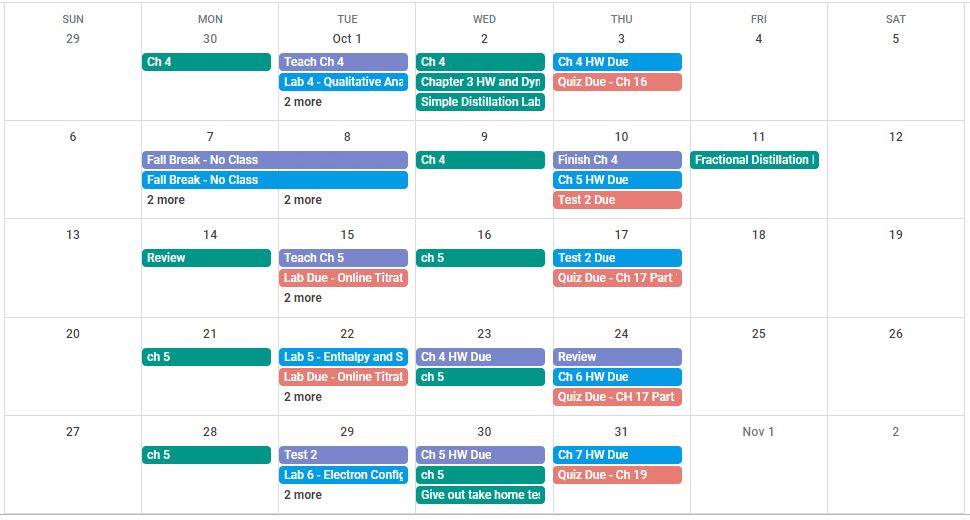Statistics ambassador Mia Paelmo tackles the topic of mental health as a student, and shares some tips and resources.

We are officially in the last leg of the semester! Unfortunately, this is also the time when burnout begins to kick in. You’re tired, you have midterms coming up, and all you want is another break. Trust me, I get it. I’ve been in your position, and I’ve spent many semesters trying to figure out how to take care of my well being in order to make it to finals. In these low moments where you feel like your mental health cannot take on anymore stress, it is important to practice self care. Today, I am going to share with you what I do to keep myself motivated and how I prioritize my mental health.
1. Go on a walk outside!
This is one of my favorite “brain break” activities, especially in the springtime. Whenever I feel stressed out or feel like I am drowning under all my work, I go outside and take a stroll around campus. It helps clear my mind and being in the fresh air really helps lessen any internal tension I might be feeling. It’s almost like a reset for my body. Sometimes a solo walk is good, I recommend throwing on your headphones and putting on a podcast or music, but I also really enjoy taking walks with my friends. It’s nice to have company and have someone to talk to. I have found that when I spend time with the people I love, it boosts my mood 100%. So, call up a friend and go outside, being in the sun can work wonders for your mental health!!

2. Do something you love
This is something that is so simple but can have such a large impact on your mood and your mental health. Sometimes, I feel like when we’re at school we focus too much on what we have to do, we never find time to do the things we want to do. And when I say you should do something you love, it doesn’t have to be a big thing. Obviously if you love to travel, you can’t just pack a bag and catch a plane in the middle of the week. However, you can find little things you can do for yourself, and honestly it will have just as much of an impact. For example, I love to cook. I’m not the best cook and I’m still learning, but the process of cooking is really soothing for me, and I get a good meal out of it! Another thing I love to do is paint my nails. It’s only about an hour long process, but that hour of mindlessly filing and painting my nails is time dedicated to giving my brain a break. As simple as these 2 activities are, they help me actively practice self care and when you take care of yourself, even in the smallest way, your mental health will thank you!
3. Stay Organized
This is a crucial stress management tip that I feel like I am constantly working to keep up with. Staying organized is so important, especially if you are taking a lot of credit hours! My suggestion is physically writing down a general work schedule for yourself at the beginning of each week. When you take multiple different classes each semester and have various deadlines, you might have trouble deciding what class to put your focus on. What I’ve found that works best for me is first, writing down all your deadlines for the week (assignments, exams, etc.). Then, I strategically pick, at most, 2 classes to study/do work for each day. I find it a lot less overwhelming when I plan out my week like this because then I’m not spending hours switching between assignments for 5 different classes. Limiting myself to only focus on 2 classes everyday motivates me to stay on top of my schoolwork, and I feel like the quality of my work is better because I spend a decent amount of time on it. I will admit, sticking to my schedule is hard, especially if you have other things going on throughout the day, but being able to break down my work by having this general outline has relieved a lot of my stress!
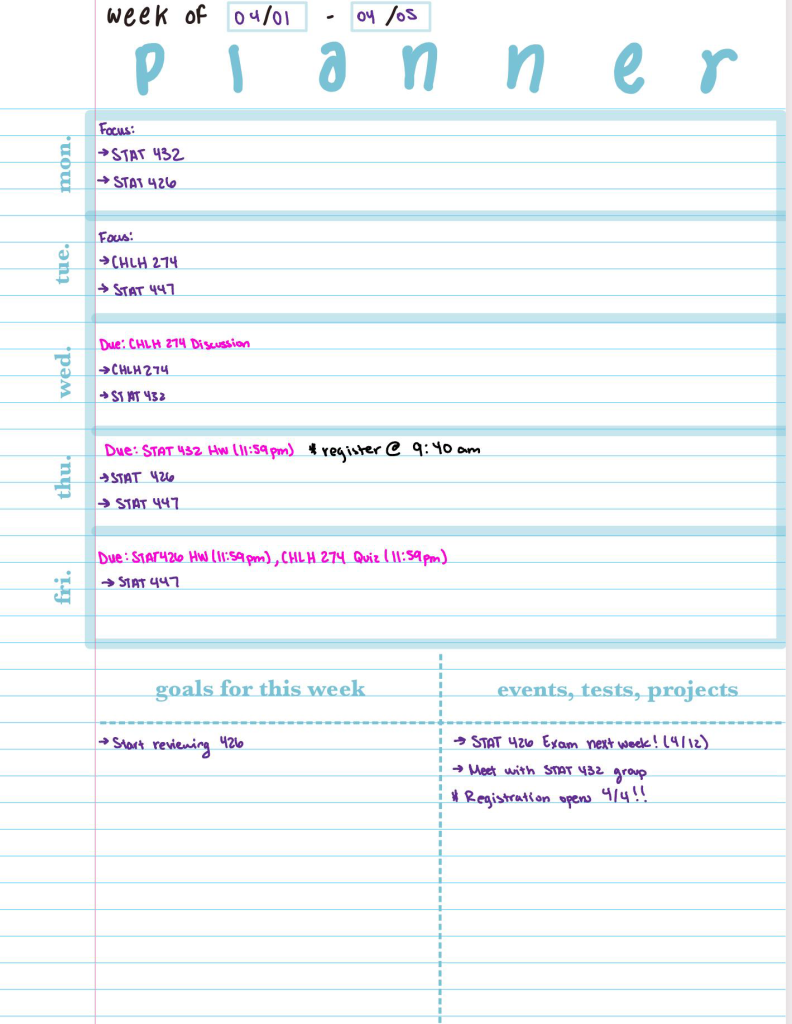
4. Counseling
I think whenever we talk about mental health in college, we are constantly reminded to go seek help at the counseling center. It probably feels really repetitive, but it’s good to know the resources around you and how they can be useful. The UIUC counseling center has a lot of great services that are available to students. Sometimes the stress can be too much for you to handle, and that is okay! Being able to talk to someone about how you’re feeling and have an outlet can take a lot of weight off your shoulders. The counseling center offers limited or continuous sessions (both private and group!) depending on what you need, so you can decide what type of commitment is right for you. Find out more info about the counseling center here: UIUC Counseling Center
To wrap this up, your mental health is just as important as your physical health. In the midst of all our school work and activities, we sometimes forget to prioritize ourselves. I hope this article has provided you with some ways you can practice self care, and remember these are just some things that I have found successful results with. Self care might look completely different for you, and that’s okay! At the end of the day, you know what’s good for you, and as long as you are doing things that make you feel happy and give yourself a break, that’s all that matters!
We’re almost to the end of the semester, keep pushing!!


